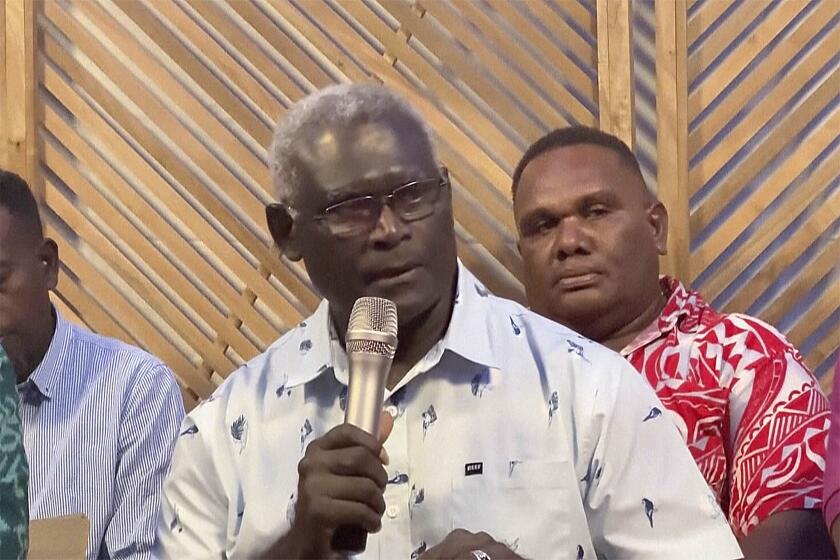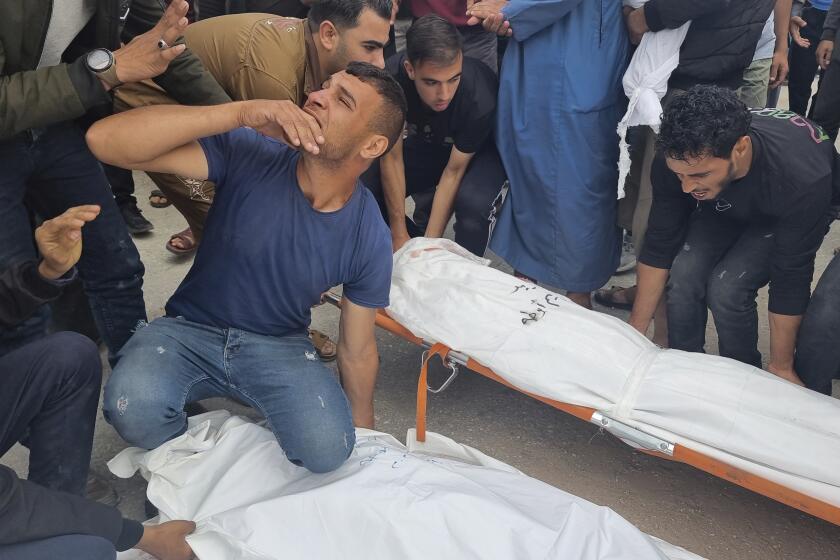Colombia to seek Israeli’s extradition
The Colombian government will seek the extradition of a former Israeli army commando arrested Monday in Moscow on charges stemming from his alleged private training of Colombian paramilitary groups in the 1980s, the Foreign Ministry said Tuesday.
The arrest of Yair Klein by Russian police followed a tip from Colombian authorities, Foreign Minister Fernando Araujo told reporters. The Russians arrested Klein, 61, on an international warrant. Klein had been traveling with a false passport, the Reuters news agency reported.
In 2001, Klein was sentenced in absentia to 10 years in jail by a judge in Manizales on charges of having trained paramilitary armies in terrorist “techniques and tactics,” Araujo said.
Klein has acknowledged in interviews with Colombian news media that he trained paramilitary groups from 1987 to 1989, but said he taught only self-defense methods. He has maintained that the Colombian armed forces were aware of his presence and that he broke no laws.
Prosecutors said he taught offensive tactics, including the use of explosives and firearms. Colombian law prohibits contact with guerrilla or paramilitary groups.
Mauricio Romero, a Javeriana University professor and expert on Colombian paramilitary groups, said he believed Klein also instructed the private armies of the Medellin drug cartel, and may have been partially responsible for a wave of killings, including those of several presidential candidates in 1989 and 1990.
Klein had served as a member of an elite Israeli army commando unit that, according to news reports, helped rescue airline passengers from a hijacked jet in Tel Aviv in 1972. He formed his own security firm in 1978.
The arrest came as Colombian President Alvaro Uribe faces intense pressure at home and abroad to take a tougher stance in bringing to justice militia leaders and those complicit in their crimes.
Democratic leaders in the U.S. Congress have said their support for a free-trade agreement with Colombia and for an extension of the Plan Colombia anti-terrorism and drug aid package will depend on Uribe improving his record on human rights and bringing paramilitary leaders to justice for alleged crimes, including mass murder, drug trafficking, land grabs and election rigging.
The paramilitary groups were formed in the 1980s by farmers and businessmen to defend against leftist guerrillas, but many changed into criminal gangs that controlled businesses and local governments.
About 31,000 militia members laid down their arms as part of a 2002 demobilization agreement, and leaders began voluntarily going to prison and confessing to crimes in exchange for lenient sentences.
The government acknowledged last week that paramilitary leaders continue to run their illegal empires from behind bars. The Interior Ministry removed Carlos Mario Jimenez from the peace process because he was suspected of conducting drug trafficking from his Itagui prison cell near Medellin. Jimenez, alias Macaco, is the former leader of the 5,000-strong Central Bolivar Bloc.
Araujo said Monday that the United States would soon formally seek Jimenez’s extradition to face drug-trafficking charges, though no U.S. criminal charges or extradition order had been filed. Araujo said Colombia would process any such formal request once it was made. Uribe has assented to hundreds of such extradition requests since he took office in 2002.
More than a dozen sitting members of Colombia’s Congress are in jail on charges of having dealings with outlawed groups that the U.S. and Colombia classify as terrorist.
“If Colombia is able to bring Klein here, it will be an important precedent in the globalization of justice,” said Javeriana University’s Romero.
--
Jenny Carolina Gonzalez of The Times’ Bogota Bureau and Times staff writer David Holley in Moscow contributed to this report.
More to Read
Start your day right
Sign up for Essential California for news, features and recommendations from the L.A. Times and beyond in your inbox six days a week.
You may occasionally receive promotional content from the Los Angeles Times.






